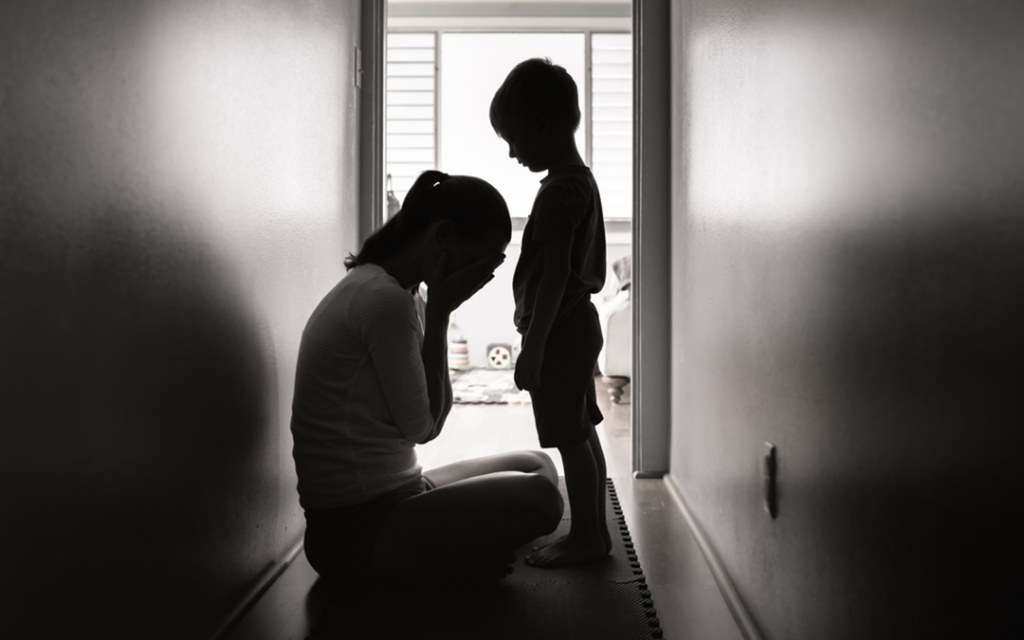The Silent Struggle: How Parental Mental Illness Affects Families

The Unspoken Reality of Parental Mental Illness
The responsibilities and pressures that families face today are compounded for everyone when a parent struggles with their mental health. The pain and awkwardness of trying to communicate the situation to others often motivate families to keep their challenges a secret, but isolation can intensify the struggle and reinforce the perception that they’re the only ones carrying this burden. Yet this struggle is much more common than people realize. According to various studies, as many as 20% of U.S. children live in a household where a parent or caregiver grapples with mental health issues. These findings suggest that anyone reading this article either knows a family facing this struggle, or their family actually is.
How Children Are Affected by a Parent’s Mental Illness
When young people grow up with the added weight of a parent struggling with mental illness, their own natural development and capacity to thrive can be placed at risk – especially when the parent’s mental illness is kept a secret. Often, impacted children find themselves shifting into the caregiver role when the needs and vulnerabilities of their parent’s mental illness arise, which can interfere with the child’s natural development.
However, a parent’s mental illness does not always result in problems for their children. “Having a parent with mental illness does not always lead to clinically significant distress in a child,” says Dr. Patricia Ibeziako, Associate Chief of Clinical Services in the Department of Psychiatry and Behavioral Services at Boston Children’s Hospital. “It depends on many factors, including the type and severity of the parent’s mental illness, how long it lasts, and the age of the child. According to Dr. Ibeziako, the two stages when children are most vulnerable are:
- Between infancy and 5 years old, due to the intensity of the brain’s development and the need to form strong attachments.
- In adolescence, teens need their parents to provide guidance, boundaries, and constructive feedback as their identity and life direction begin to take shape.
A Silver Lining: Resilience Amidst Challenges
It is important to recognize that despite these obstacles, many children who grow up in such households develop remarkable resilience. These kids have plenty of moments to remind themselves that they can do hard things, solve problems, and overcome adversity. Additionally, “many children who grow up with a parent’s mental or physical illness learn empathy and kindness [and] the ability to deal with difficult circumstances,” Dr. Ibeziako says. She also notes that the challenges these children face can result in lifelong skills, allowing them to become compassionate adults and understanding parents.
Risk Factors That Can Compromise Healthy Development
Factors that can make a child’s healthy development more vulnerable are isolation stemming from the family keeping the parent’s mental illness a secret, and the potential that a struggling parent may be unable to meet the child’s needs for bonding, guidance, and structure. In toddlers, a lack of stability and encouraging emotional connection may compromise their ability to self-regulate impulse control, emotional responses, and other behaviors. According to Dr. Ibeziako, this may be expressed in a young child’s bedwetting, difficulty sleeping, tantrums, or potty-training regression. Adolescents in this situation may find problem-solving more difficult and struggle with heightened worry and anxiety. They also might react destructively to parents out of frustration that they’re not receiving the guidance and support they need. Adding the frequent stigma of being misunderstood and unable to explain the situation, it’s easy to see why the entire family—but particularly the child—can benefit when they widen their circle of support.
Support Where It Matters Most
Families in this situation need practical support in every dimension of life. Neighbors, friends, and educators can make a difference by helping with:
- Curiosity: Keeping an eye out for youngsters who appear to be managing educational and social expectations on their own.
- Compassion: Offering practical help like rides, meal preparation, or homework assistance when a parent seems overwhelmed.
- Courage: Helping families find professional resources if a parent appears to be struggling with anxiety, depression, or other mental illness.
Breaking the Stigma, Widening the Circle
The best starting point for everyone involved is to dismantle the stigma surrounding mental health. It’s crucial to establish a culture where it’s okay to ask for and offer help outside the family. By widening the circle of support, families are not just mitigating the immediate challenges of parental mental illness but investing in long-term well-being. This extended network provides a cushion against the unforeseen challenges that are likely to arise over time, making each family member better equipped to handle what comes their way. Above all, it helps normalize the dialogue around mental health, making it easier for future families to seek the support they need without the added weight of stigma.
About TLC
The Lincoln Center for Family and Youth (TLC) is a social enterprise company serving the Greater Philadelphia Area. Among its five divisions, TLC offers School-based Staffing Solutions, Mobile Coaching and Counseling, and Heather’s Hope: A Center for Victims of Crime. These major programs are united under TLC’s mission to promote positive choices and cultivate meaningful connections through education, counseling, coaching, and consulting.
About the Author
MaryJo Burchard (Ph.D. in Organizational Leadership) is co-founder and principal of Concord Solutions, a Virginia-based consultancy firm focused on helping leaders and organizations thrive while facing major disruption. Concord Solutions offers consulting, coaching, training, research, and keynote speaking surrounding trauma-informed leadership and assessing and building change readiness, trust, and belonging.